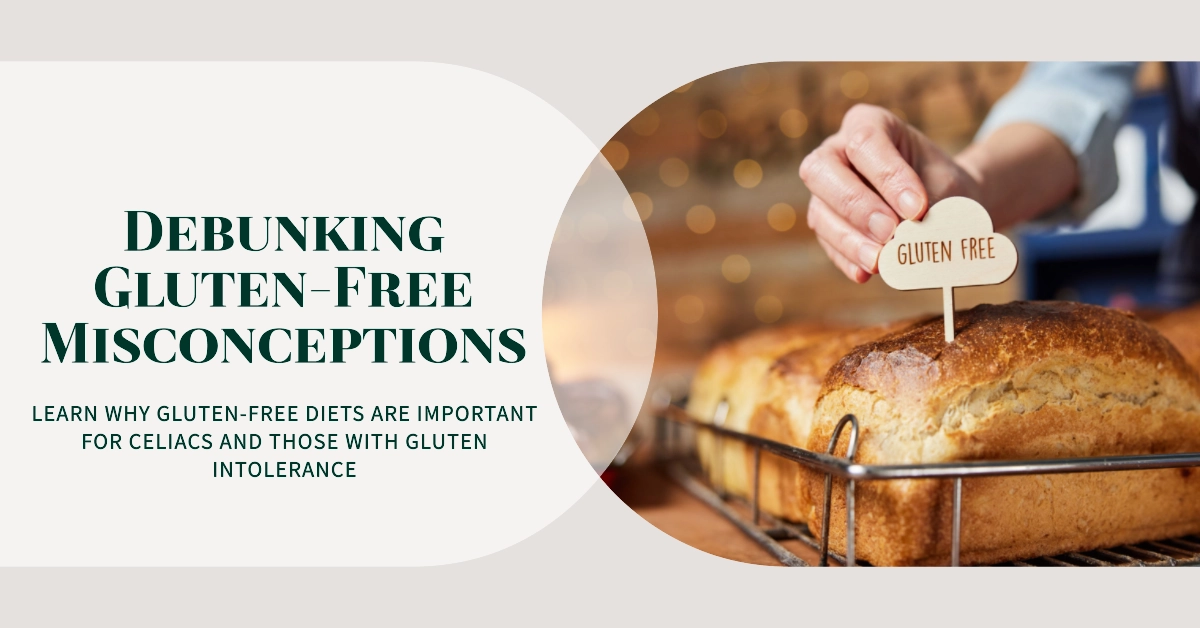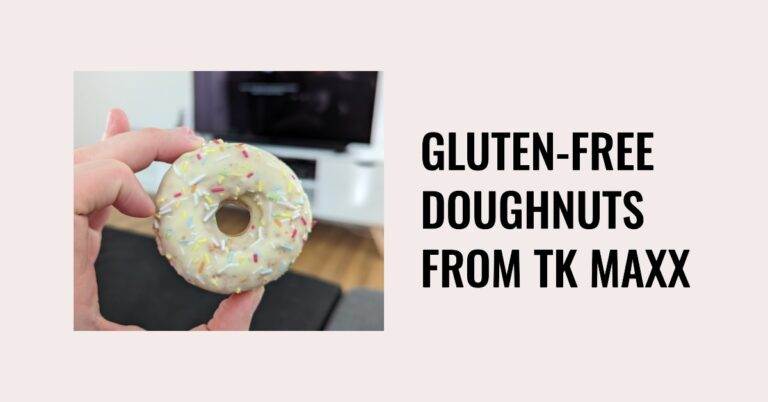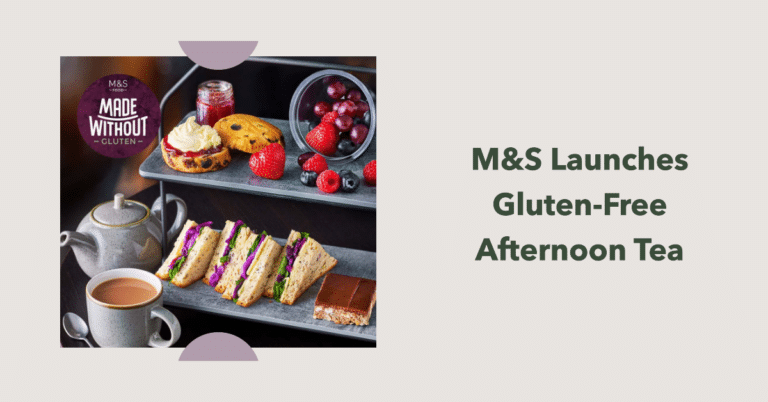28% of Americans Say Gluten-Free Is for Show – Here’s Why It’s Not

As the fork descends onto a plate of delicious pasta, one can almost taste the indulgence of Italian cuisine.
But what’s this? A second glance reveals that it’s gluten-free pasta. Is this a lifestyle choice? A foodie’s new experiment?
Not for the 2 million Americans suffering from celiac disease. For them, it’s a necessity.
Living gluten-free has been on the rise, and it’s not just about fashion diets or seeking attention.
Let’s dive into what the latest survey tells us about the awareness of celiac disease and how we’re missing the mark.
Gluten-Free: Not a Choice but a Lifeline
Imagine, if you will, a world where eating a simple slice of bread feels like playing Russian roulette with your health.
Sounds dramatic? That’s because celiac disease is nothing to shrug off. It’s a lifelong battle against an ingredient found in many of our favorite comfort foods.
The recent survey conducted by The Harris Poll on behalf of Beyond Celiac has thrown light on a concerning reality: 28% of Americans believe that a gluten-free diet is about seeking attention.
It’s like saying people wear glasses to look smart! No, the lens is not a fashion statement, and neither is gluten-free eating for celiac patients.
The Invisible Struggle with Celiac Disease
- Misconceptions Abound: Nearly three in ten Americans associate gluten-free living with attention-seeking.
- Reality Check: Over 2 million Americans suffer from celiac disease, an autoimmune condition requiring a strict gluten-free diet.
Here’s a fun twist: while gluten-free diets are gaining popularity, they’re also becoming misunderstood.
It’s high time to set the record straight and to educate folks about celiac disease. For millions, it’s a serious, invisible struggle, not a choice.
Diagnosis: A Challenge in Disguise
Finding out you’ve got celiac disease isn’t as easy as pie.
In fact, only 27% of respondents realized how tricky diagnosing celiac disease can be. It’s like trying to find a needle in a haystack with blindfolds on!
Celiac disease has a way of being a chameleon, hiding behind atypical symptoms and misdiagnoses.
You wouldn’t judge a book by its cover, so why judge a condition by its most common symptoms?
For many, getting the right diagnosis is a journey filled with uncertainty, a roller coaster of emotions, and a constant battle against the unknown.
It’s time to bring this journey into the spotlight and recognize the real faces behind the gluten-free lifestyle.
The ripple effect of this survey reaches far beyond the statistics. It’s a wake-up call to all of us, to see beyond the plate and into the real world of those living with celiac disease.
When Gluten Becomes the Enemy
Have you ever thought about being at war with something on your dinner plate? Welcome to the life of someone with celiac disease.
The battlefield is the kitchen, and the enemy is gluten. But what happens if the enemy invades? Let’s find out.
The Silent Attack: Consequences of Untreated Celiac Disease
Often, what we don’t see can harm us the most. The survey tells us that only 40% of Americans are aware of the severe health consequences of untreated celiac disease.
It’s like a ticking time bomb waiting to explode, only quieter.
The effects of celiac disease are not just restricted to discomfort or a temporary reaction – it can lead to severe health issues like cancer and autoimmune disorders.
Let’s unwrap this mystery a bit:
Serious Consequences Await
- Small Intestine Damage: The villain in this story, gluten, can cause havoc in the small intestine.
- Severe Health Risks: From cancer to autoimmune disorders, untreated celiac disease isn’t something to sweep under the rug.
Awareness: A Key to Unlocking Support
Beyond Celiac founder Alice Bast has a clear message: Raise awareness about celiac disease. It’s a call to arms for understanding, compassion, and knowledge.
Think of it as a roadmap guiding us away from misconceptions and toward empathy.
The need to increase awareness is not just a rallying cry; it’s a mission.
We must educate both celiac patients and the general public, not only about the facts but also about the risks of living with this condition.
It’s about supporting those who walk a tightrope every mealtime.
Bridging the Gap: Knowledge and Compassion
- Understanding Over Judgement: Let’s not mistake medical necessity for attention-seeking.
- Embracing Differences: A gluten-free diet isn’t a trend; it’s a life-saver for many.
A Medical Puzzle Without a Silver Bullet
What if I told you there’s no magic pill for celiac disease? Unfortunately, it’s the truth.
Currently, there are no medications or cures, only a strict adherence to a gluten-free diet.
It’s not a walk in the park; it’s a constant vigilance game, like guarding a treasure chest without a map.
Marching Forward: More Work Ahead
Despite improved awareness, the path ahead is not all sunshine and rainbows. There’s still more work to be done.
If you think of celiac disease as an iceberg, what we know might just be the tip. We’re just scratching the surface.
The gluten-free path isn’t merely about forgoing bread or pasta. It’s about embracing a lifestyle, recognizing its complexities, and extending a helping hand to those who walk this path every day.
In this fight against celiac disease, there’s no room for judgement; only empathy, awareness, and determination will win the day.
The Road Ahead: Navigating the Gluten-Free Landscape
Let’s face it: understanding celiac disease is a journey. It’s like a winding road filled with twists and turns.
Sure, we’ve made progress, but there’s still a lot left to uncover.
Finding Harmony in a Gluten-Free World
We’re not just talking about understanding what celiac disease is or what a gluten-free diet entails.
It’s about making friends, neighbors, and even strangers feel comfortable with their dietary needs.
Imagine breaking down a wall that’s been standing for years. That’s what we need to do with misconceptions.
Doctors, teachers, family, friends — we all have a part to play.
Empowering Lives Beyond Gluten
A gluten-free lifestyle isn’t a trend; it’s a must-have for millions. We need to move beyond labels and focus on acceptance and support. It’s about seeing the person, not the diet.
What can you do? Learn about celiac disease, show compassion, and embrace the gluten-free choices of others.
Small acts can make a big difference.
Sharing the Table: How to Make a Difference
- Get Informed: Knowledge knocks down barriers.
- Include Everyone: Think of others at home, school, or dining out.
- Back the Cause: Support groups like Beyond Celiac that push for awareness.
Debunking Gluten-Free Misconceptions – Final Thoughts
That nationwide survey? It was a wake-up call. It showed us that gluten is more than a dietary whim for many. It’s a daily battle.
The road to awareness is a tough one, but it’s worth the climb. Celiac disease shouldn’t be a lonely journey. We can make it together.
So the next time you see gluten-free pasta on the menu, think about the person for whom it’s not a choice but a need.
And let’s look forward to a world where gluten-free living is understood, not misunderstood.
Let’s toast (with gluten-free bread!) to compassion, acceptance, and a future where we all know what it truly means to live beyond gluten.
Disclaimer: This content is based on my personal experience as an individual diagnosed with celiac disease and IBS (Irritable Bowel Syndrome) who follows a strict gluten-free diet. This does not constitute medical advice. Please consult a medical professional, nutritionist, or qualified dietitian for personalized, professional advice.


